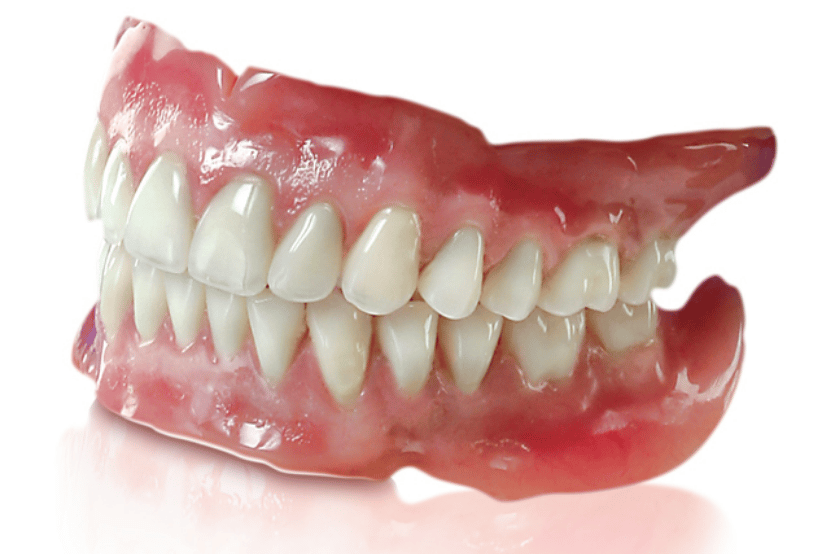4801 Southern Hills Dr, Sioux City, IA 51106, USA

Do you ever feel insecure while wearing dentures? It’s frustrating when they don’t stay in place, especially when eating or speaking. But have you ever wondered why? There are various factors that determine how well your dentures fit and stay in place. In this blog post, we will be discussing the top 5 factors that influence how comfortable and secure your dentures will be. So let’s dive into it!
How Dentures Fit Is Determined By Five Factors
There are five primary factors that affect how well dentures fit:
Factor #1: Jawbone Shape
The first factor that determines how well dentures stay in place is the shape of your jawbone. If you have a V-shaped jawbone, the dentures will tend to stay in place better than if you have a U-shaped jawbone. The reason for this is that the V-shape provides more support for the dentures and helps to keep them from slipping out of place.
Factor #2: Type of Dentures Used
When deciding what type of dentures to use, you must consider both the function and aesthetics of your new teeth. There are two main types of denture materials: acrylic and porcelain. Acrylic is a less expensive option that is easier to adjust, but porcelain looks more natural and often lasts longer. You should also think about whether you want full or partial dentures. Full dentures replace all of your teeth, while partial dentures only fill in the gaps left by missing teeth.
Your dentist will help you decide which type of dentures are right for you based on your individual needs. If you have a strong bite and healthy gums, you may be a good candidate for porcelain dentures. Porcelain is also a good choice if you are concerned about how your dentures will look. However, if you have weak gums or a poor bite, acrylic may be the better option. Acrylic is easier to adjust and won’t put as much pressure on your gums.
No matter what type of dentures you choose, it’s important to take care of them properly. Be sure to brush your dentures every day with a soft-bristled brush and non-abrasive cleaner. You should also soak them in water or a mild cleaning solution overnight to prevent them from drying out. With proper care, your dentures can last for many years.
Factor #3: Residual Ridge Height & Girth
When it comes to well-fitting dentures, ridge height, and girth play a significant role. Ridge height is the vertical distance between the top of the gums and the bottom of the nose. The higher the ridge, the more support the denture has to stay in place. Girth, on the other hand, is the measurement around the jawline. A wider girth provides more support and stability for dentures.
Both factors are important to consider when getting dentures fitted. If you have a strong ridge with good height, you may be able to get away with a smaller girth. However, if your ridge is weak or thin, you’ll need a wider girth to make up for it. Ultimately, it’s best to consult with a dental professional to see what combination of ridge height and girth will work best for you.
Factor #4: Chewing Surface Stabilization
Dentures are usually equipped with a chewing surface stabilization feature to help keep them in place. This is typically a bar or ridge of some sort that extends along the inside of the denture and fits snugly against the gum tissue. The stability provided by this feature helps to keep the denture from sliding around in the mouth, making it more likely to stay in place during eating and talking.
Factor #5: Oral Hygiene Practices
Your oral hygiene practices play a big role in how well your dentures stay in place. Brushing and flossing help remove food and plaque from your dentures, which can cause them to become loose. Keeping your dentures clean also helps prevent bad breath.
If you wear full dentures, be sure to brush them every day with a gentle toothbrush. You can also use denture cleaner or mild dish soap. Avoid using harsh cleaners, like bleach, as they can damage your dentures.
Be sure to brush your gums, tongue, and the roof of your mouth every day as well. This will help remove any food particles or plaque that could cause irritation or infection. It’s also important to visit your dentist regularly for professional cleanings and checkups.
Summary
It is essential to understand the factors that influence how secure dentures stay in place if you are considering getting fitted with them. Careful selection of a reliable dentist and taking into account the unique characteristics of your mouth can help ensure your dentures will fit well and stay firmly in place without causing any discomfort or irritation. You should always keep up with regular dental check-ups so that any changes in your jawbone structure can be detected early on and dealt with accordingly by professionals. With these helpful tips, you should be able to find the perfect pair of dentures for yourself!
1. How well do dentures stay in place?
Unfortunately, there is no simple answer to this question. Several factors can influence how well your dentures fit and stay in place, including the type of denture you have, the size and shape of your mouth, the amount of saliva you produce, and your overall health.
2. What are the different types of dentures?
Dentures come in two main varieties: complete dentures and partial dentures. Complete dentures are used when all of the natural teeth have been lost, while partial dentures are used when some natural teeth remain. Both types of dentures are custom-made to fit each individual’s mouth.
3. How does the size and shape of my mouth affect my dentures?
The size and shape of your mouth can influence how well your denture fits. If you have a small mouth, for example, it may be difficult to get a good fit with a complete dental prosthesis (false teeth). In general, however, most people are able to adjust to wearing Dentistry.




